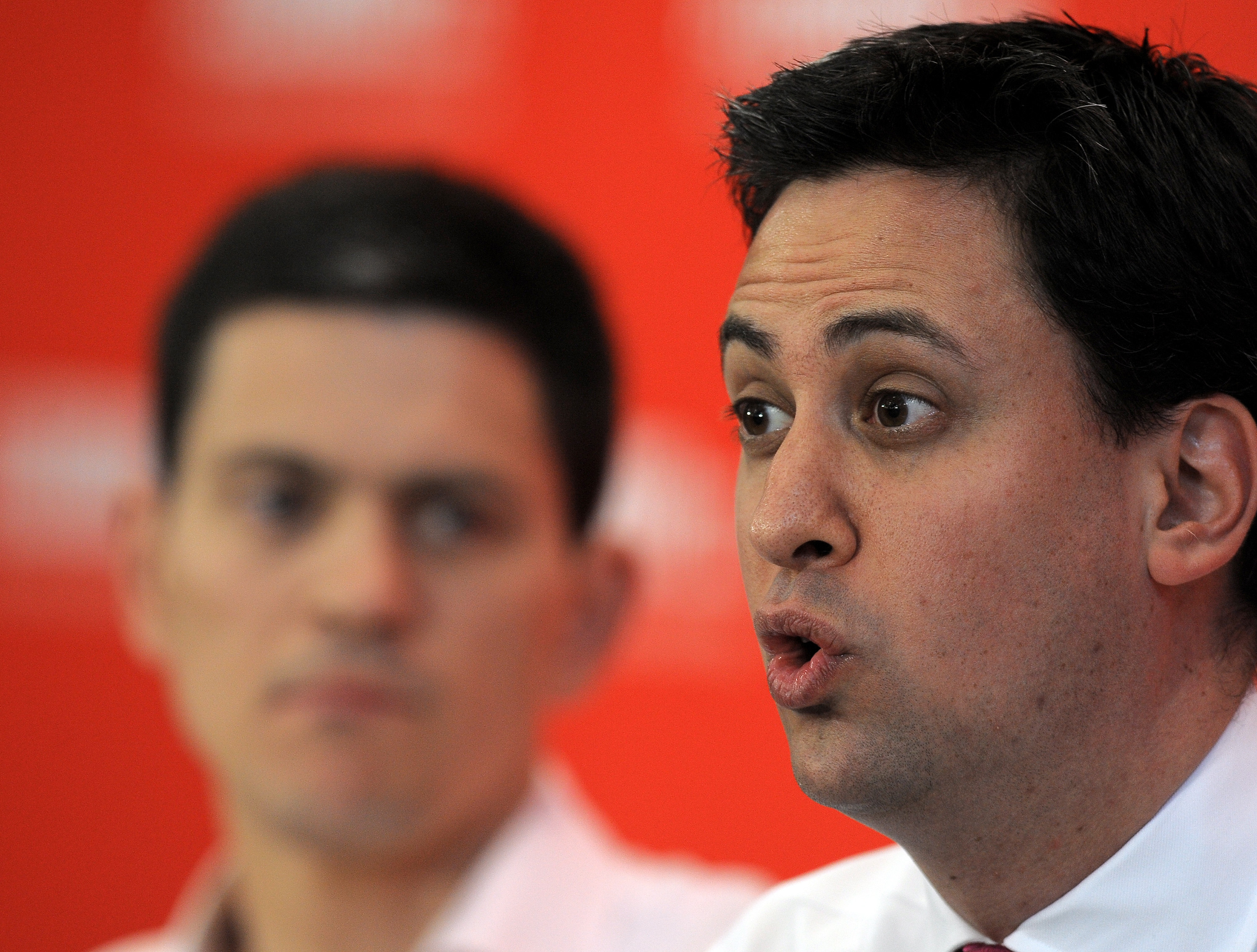 While the focus remains fixed on the dramas of Coalitionville, it’s worth remembering
that today’s votes are meaningful for Ed Miliband too. The Labour leader may not be facing the prospect of resignations, nor even outcry, at their various outcomes. But this is, nonetheless, the
first major electoral moment of his leadership. He might well be judged on it.
While the focus remains fixed on the dramas of Coalitionville, it’s worth remembering
that today’s votes are meaningful for Ed Miliband too. The Labour leader may not be facing the prospect of resignations, nor even outcry, at their various outcomes. But this is, nonetheless, the
first major electoral moment of his leadership. He might well be judged on it.
In which case, much will depend on the extent to which Labour advances in England have already been priced into the electoral calculus. If the party’s footsoldiers regard sweeping gains — of perhaps around 1,000 seats — as some sort of default, then attention may turn instead to the turnaround in favour of the SNP in Scotland, and to the likely defeat for Yes to AV. The narrative surrounding Miliband could flip from one of attainment to one of disappointment.
If disgruntlement is to come, then I reckon it might be around the Labour’s leader’s slim policy offering. In a snappy round-up of the latest MiliNews over at FT Westminster, Jim Pickard puts the issue bluntly: “I would ask the party about policies, if only it had any.” We have heard Miliband say a lot, but we still have little idea of what he would do.
There are some who claim that this isn’t a problem, that it’s all part of the plan. After all, Cameron took some time to flesh out the rickety bones of his agenda, so the early part of a leadership can be all about the tone, not the detail. But, as I see it, that argument falls down for Ed Miliband on two counts.
The first of these is simply that the national debate is more involved than it has been for some time. The deficit is the issue of the day — and, by its very nature, it is one that calls for a degree of detail in response. Any politician who cannot talk about savings, and about delivering good services at wholesale prices, risks looking insubstantial. Miliband’s instinct, at the moment, is towards “detoxification” — but the thinness of his routine could just reinforce the idea that his party is one of opposition, not of government.
And then there’s the second factor: David Miliband. Fact is, the elder brother had the more detailed policy prospectus during the leadership contest — and there are signs that it has developed since. Whether it is MiliD’s own take on the Big Society, or the work on welfare being done by his ally James Purnell, much of the Labour party’s most vibrant thinking is going on around the former Foreign Secretary. MiliE could, of course, adopt some of this as his own — but the fact remains that David Miliband appears to be the man with ideas, agree with them or no’.
It was, last September, the unions who delivered Ed Miliband to the throne, against the overall wishes of the party’s MPs and its members. Tomorrow might bring vindication for the brothers. But it might instead aggravate those who are still thinking, what if?







Comments